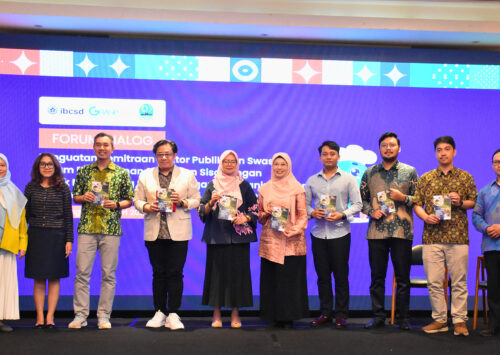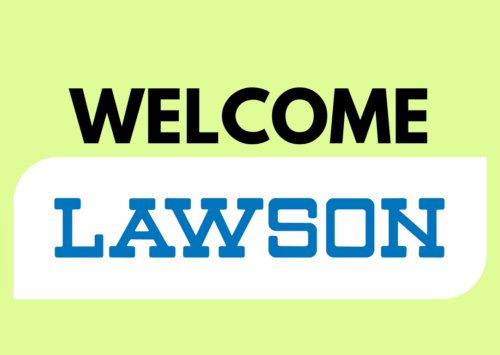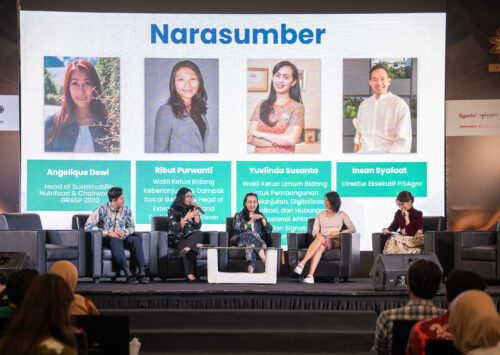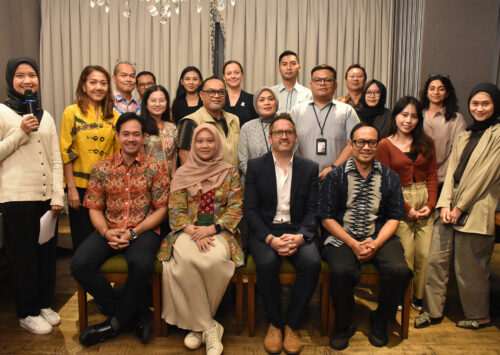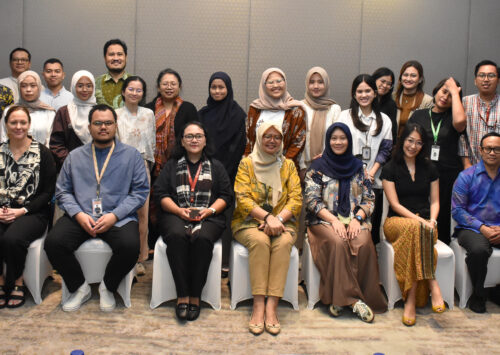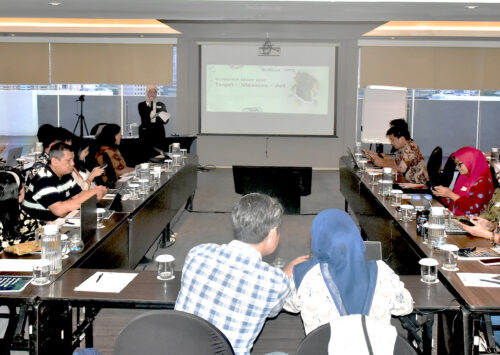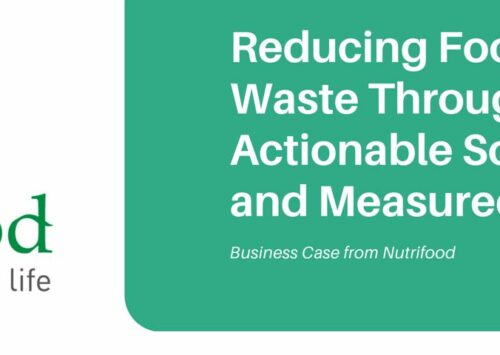As part of a collective commitment to reduce food loss and waste (FLW) in Indonesia, the Indonesia Business Council for Sustainable Development (IBCSD) and the Waste Resources Action Programme (WRAP) facilitated the second discussion of the Food Redistribution Working Group (FRWG) on July 29–30, 2025. This forum builds on the first discussion held in June and once again brings together stakeholders from various sectors to develop more comprehensive and practical guidelines for food redistribution.
This initiative is part of GRASP 2030, which supports Sustainable Development Goal (SDG) 12.3 by promoting the implementation of high-value solutions in tackling food loss and waste, including the redistribution of food fit for consumption to communities in need.
Day One: Agreeing on Strategic Points in the Guidance Document
The first day of discussions was opened by Fierra Setyawan, Program Manager for Food, Nature and People, representing the Executive Director of IBCSD, who emphasized that food redistribution is an important strategy in systematically reducing FLW. In his remarks, he highlighted the importance of developing guidelines that can minimize risks and maintain the reputation of all parties involved, both from the private sector and donor agencies.
Following the opening session, Aloysius Wiratmo, Team Leader GRASP 2030 at IBCSD, presented the results of the first discussion and the structure of the forum. He emphasized that the guidelines are a living document—one that can be amended in line with regulatory developments and participant input.
The discussion continued with a review of further points from the guidance document (points 15–27), which included:
- Revision of the term “internal audit” to “self-inspection”
- Adjustment of the maximum waiting time for ready-to-eat food
- Revision of food labels and information in accordance with legal provisions
- Reaffirmation of the responsibilities of food reprocessors
- Regulation of sensitive products such as infant formula, PKMK, and PKGK
- Additional indicators such as the calculation of greenhouse gas savings
The forum agreed on these various inputs, with notes to be incorporated into the next draft of the guidelines.
The first day ended with participants being divided into three discussion groups to discuss the Food Type Table based on the risk classification of the National Food Agency (Bapanas), the results of which were presented the following day.
Day Two: Finalization of Food Type Table and Follow-up Actions
The second day of discussions focused on refining the Food Type Table, led by Chairperson Kenny from Nutrifood. Each group presented the results of their discussions, ranging from dairy products and their derivatives, oils, vegetables and fruits, to ready-to-eat foods.
Some of the key points agreed upon included:
- Addition of new product categories such as UHT yogurt and liquid sugar
- Improvement of product damage indicators (such as replacing “dent” with “leaking or bulging can”)
- Adjustment of shelf life terms to be clearer and less ambiguous
- Storage temperature requirements for ready-to-eat foods based on Codex Alimentarius standards
- Identification of products that must be distributed immediately or require special handling
The second day of discussions was closed by Aloysius Wiratmo with the presentation of a follow-up plan. The GRASP 2030 Secretariat team will draft the second version of the guidelines, incorporating all the inputs discussed. For technical issues that still require clarification, participants are encouraged to submit additional written inputs.
This discussion serves as strong evidence of the collaborative spirit in promoting a more efficient, inclusive, and evidence-based food redistribution system. With the active involvement of all stakeholders, GRASP 2030 continues to move toward a national food system that is low-waste, equitable, and sustainable.
How can GRASP 2030 help?
GRASP 2030 (Gotong Royong Atasi Susut & Sisa Pangan di Tahun 2030) is a voluntary agreement initiated by the Indonesia Business Council for Sustainable Development (IBCSD) to unite businesses and other stakeholders in an effort to reduce food loss and waste by 50% by 2030, in line with SDG 12.3.
Since its launch in September 2021, GRASP 2030 has brought together 39 members from various sectors—including the food and beverage industry, hospitality, startups, think tanks, food banks, and retail—to promote collaboration across the entire food system.
GRASP 2030 encourages businesses to adopt a Target-Measure-Action (TMA) framework that enables them to take strategic and measurable steps. By providing practical guidance, data-driven insights, and a collaborative platform, GRASP 2030 helps businesses identify inefficiencies, implement solutions, and monitor progress. Through collective action, this initiative not only reduces food loss and waste but also enhances environmental sustainability, social well-being, and economic resilience across Indonesia.
